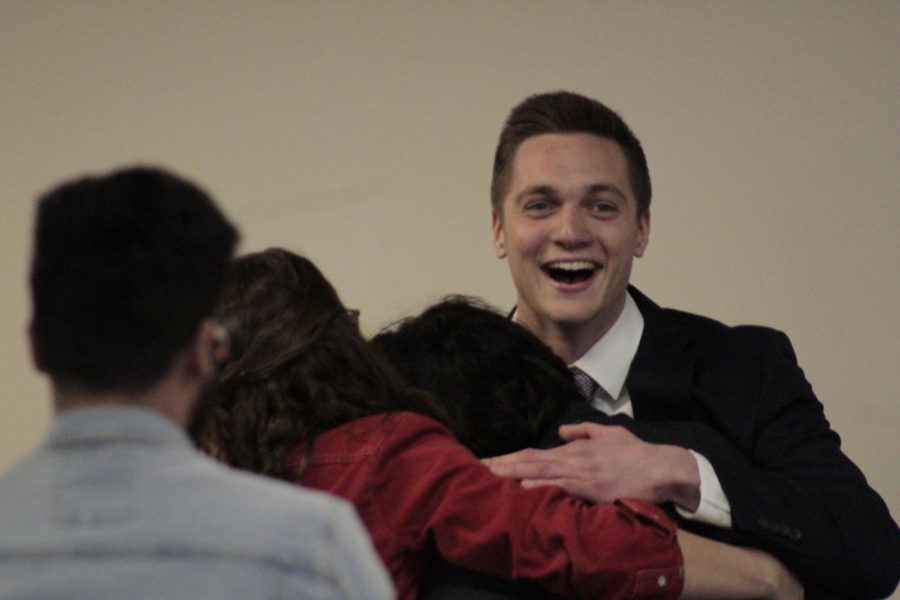Editorial: Make Student Government more accessible
Austin Graber and Vishesh Bhatia were announced to be the Student Government president and vice president with 54 percent of the vote, as announced on Friday night.
March 25, 2019
Nearly two weeks ago, a new president and vice president were elected to Student Government. They won with 54 percent of the vote.
A new Senate was elected, too.
Surprised? The ISD Editorial Board wouldn’t blame you. The results were held at 7 p.m. the Friday before spring break, meaning a lot of students had most likely already skipped town for home or vacation.
On top of that, voter turnout was just 14.9 percent — down 2.9 percent from last year and nearly 9.1 percent down from 2017.
This means that the students elected to represent Student Government were selected by 5,220 people.
While some senators won with more than 1,000 votes, some seats were so uncontested that write-in candidates with just 2 votes now have the opportunity to be seated.
Student Government is important. Outside of allocating thousands of dollars in funding requests to student organizations, the governing body also serves as a resource to students and a liaison for administration.
Student Government is supposed to be the pulse of the student body. So, why doesn’t the student body care?
Accessibility is huge. Student Government, specifically Senate, has made efforts in recent years to make their meetings more available through live streaming the meetings.
It also adapted a new external first then internal second policy that allows for the Senate to discuss funding requests from outside organizations before moving into internal matters and resolutions.
Yet, there’s still a giant barrier that Student Government must figure out: making sure every student knows about Student Government and feels represented by its legislative and executive branches.
This is no easy task. But it starts with making sure that all events held by Student Government are accessible to every student, not just those who are able to stick around the Friday night before spring break.
Students want to get involved. Not only was there an overflow of seating at the presidential debate, but 111 questions were asked via a Google Form set up by the Election Commission and the Iowa State Daily.
Students care about the issues. Students care about their campus. But the ownership of getting involved should not fall solely to them.
Reverse town halls was a large part of President-elect Austin Graber and Vice President-elect Vishesh Bhatia’s campaign.
The ISD Editorial Board hopes they take their outreach seriously and focus not just on incoming freshman who have never heard of Student Government before, but upperclassman who may have a skewed image of the organization and what it does.
So, congratulations to the newly elected president, vice president and Senate. We hope that you’re up to the task ahead of you. It is not easy, but it is necessary.







